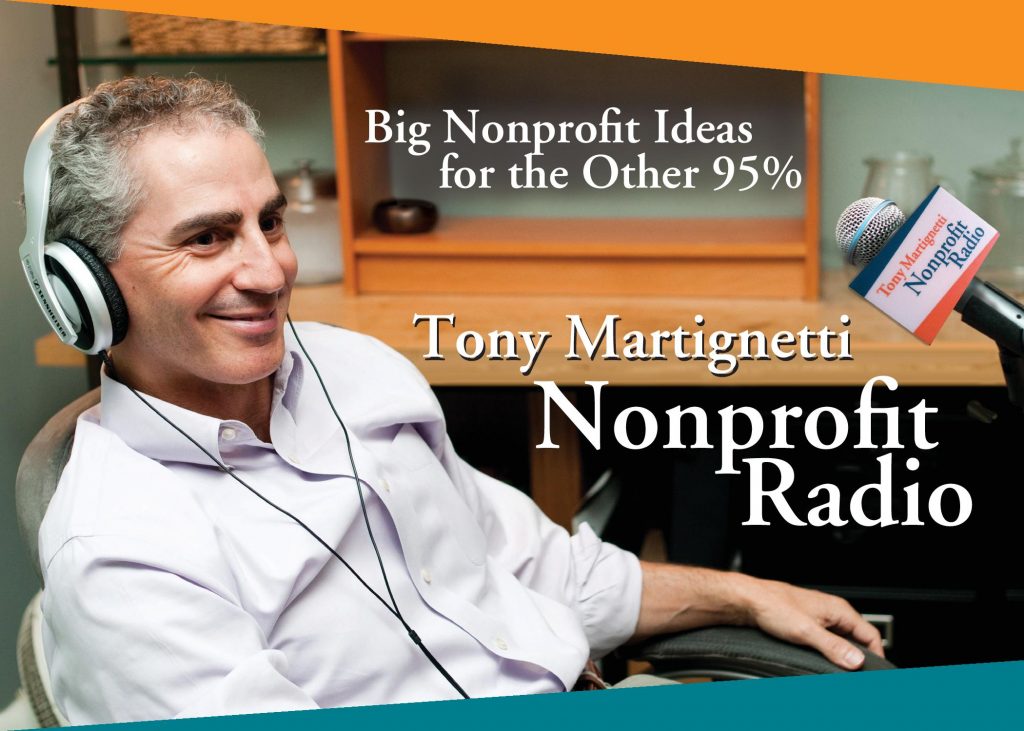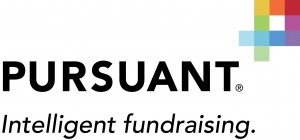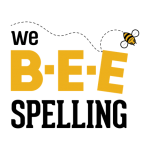
Bryan Shane: Performance Measurement
 There’s a systematic method for you to get feedback on your nonprofit’s finances; programs, clients; and employees. It’s both art and science. Bryan Shane explains this management and decision-making tool. He’s co-author of the book, “The Leadership-Driven Method to Performance Measurement.”
There’s a systematic method for you to get feedback on your nonprofit’s finances; programs, clients; and employees. It’s both art and science. Bryan Shane explains this management and decision-making tool. He’s co-author of the book, “The Leadership-Driven Method to Performance Measurement.”
Listen to the podcast
Podcast: Play in new window | Download
Get Nonprofit Radio insider alerts!
I love our sponsor!
Donorbox: Powerful fundraising features made refreshingly easy.
We’re the #1 Podcast for Nonprofits, With 13,000+ Weekly Listeners
Board relations. Fundraising. Volunteer management. Prospect research. Legal compliance. Accounting. Finance. Investments. Donor relations. Public relations. Marketing. Technology. Social media.
Every nonprofit struggles with these issues. Big nonprofits hire experts. The other 95% listen to Tony Martignetti Nonprofit Radio. Trusted experts and leading thinkers join me each week to tackle the tough issues. If you have big dreams but a small budget, you have a home at Tony Martignetti Nonprofit Radio.
View Full Transcript
S3 bucket containing transcription results: transcript.results
Link to bucket: https://s3.console.aws.amazon.com/s3/buckets/transcript.results
Path to JSON: https://s3.console.aws.amazon.com/s3/object/transcript.results?prefix=czM6Ly9hdWRpby5tcGdhZHYuY29tLzIwMjQvMDEvNjczX3RvbnlfbWFydGlnbmV0dGlfbm9ucHJvZml0X3JhZGlvXzIwMjQwMTE1Lm1wMw–.1705025861.json
Path to text: https://s3.console.aws.amazon.com/s3/object/transcript.results?prefix=transcript/2024/01/673_tony_martignetti_nonprofit_radio_20240115.txt
And welcome to Tony Martignetti Nonprofit radio. Big nonprofit ideas for the other 95%. I’m your aptly named host and the pod father of your favorite abdominal podcast. Oh, and my goodness. Did I sound terrible last week, Echoy? Like the Holland tunnel without traffic. Uh Like I’m in a brick, I don’t know, brick echo chamber. Uh I’m, I’m between mics. Uh I know it’s much better this week. It should get even better when the really good mic comes. So, uh but apologies for the sound. My sound last week. Oh, I’m glad you’re with us. I’d be hit with LEVO version if you left me with the idea that you missed this week’s show. Here’s our associate producer, Kate with the highlights. Hey, Tony, this week it’s performance measurement. There’s a systematic method for you to get feedback on your nonprofits, finances programs, clients and employees. It’s both art and science. Brian Shane explains this management and decision making tool. He’s co-author of the book, the leadership driven Method to performance measurement on Tony’s take two Planned Giving Accelerator were sponsored by donor box, outdated donation forms, blocking your supporters, generosity. Donor box vast flexible and friendly fundraising forms for your nonprofit donor. Box.org here is performance measurement. It’s a pleasure to welcome Brian Shane to the show. He is co-author with Patricia Lafferty of the leadership driven method to performance measurement. The how to book on improving performance measurement in the public and not for profit sectors. With Patricia. Brian is also co-founder of B PC management consultants, a client centered management consulting firm based in Ottawa, the capital in the province of Ontario, Canada. The book is at B PC gallery.com and Brian is on linkedin. Brian, Shane. Welcome to nonprofit radio. Good morning, Tony. Pleasure to have you. Uh We’re, we’re recording just uh early January and uh it’s cold, it’s cold for you in uh in Ottawa. It is um actually we had no snow in winter and uh we’re under a, a major uh snowfall warning, I guess it’s coming from the States down here. And uh so actually I love, I love winter. I love, I love the cold. I love skating and skiing and, and all that stuff. So, um when there’s no snow, it’s kind of like just bad weather. You can’t do anything except for go, go for walks and uh, oh, so you look, you look forward to the snow. Um Yeah, I’m a, I’m a photographer on the side and um, um I, you know, winter is when um, a lot of the Raptors, you know, owls and eagles and hawks come down from the north. So it’s, uh, it’s, it’s fun to do that. And, uh, so this is the time of year when I actually do a lot of my raptor photography because, you know, it’s here and I’m sure it’s the same, not, probably doesn’t extend as far South Carolina, North Carolina, but certainly in New York and, uh, the upper, upper northern states of the US. So, uh, those predator birds. Yeah, there are hawks, hawks, raptors. I don’t know, I don’t know if owls are considered predators but anything that eats, anything that eats. So, II, I enjoy, I enjoy doing that. And, uh, um, so, um, and when, when, when we, before we started, you said, uh, it’s minus 10 °F and not too cold, you said it’s not so cold, it’s minus 10. It’s minus 10 °C. So, so it’s about maybe minus four °F. No, that was Celsius. Ok. Ok. So it’s still, it’s probably five or six °F. So, it’s, it’s cool but it’s not, I love that. It’s cool. It’s cool. I consider cool to be 50. 50 is cool here in North Carolina. It’s, it’s funny, I was in Florida a number of years ago and a friend of mine kept saying it was cold at 50 degrees and I kept going, it’s cold at 50 degrees. I mean, try 20 boulevard when I got down there and it was 80 it dropped to 50. I said, yeah, it’s cold. Yeah. Well, of course, it’s all, it’s all relative. Right? If you start at 8050 is, that’s, that’s what I’m accustomed to. So, you’re in North Carolina? All right. Um, all right. So you’re a photographer and a, and a performance measurer. We’re gonna spend more time talking about performance measurement than photography. I hope that’s ok. That’s ok. Ok. You’ve written books on, you have a book on performance measurement. I feel like we should talk about that. Um There are other podcasts for uh for photography. So let’s let’s get people just acquainted with um what performance measurement is. What, what let’s make sure we just have a simple definition. OK. Sure. Um I, I’m gonna start with what it’s not, it’s not performance appraisal and most people make the assumption that when you’re measuring performance, you’re measuring it at the individual level with this performance appraisal. It’s not that it’s, it’s measurement at the organizational level and it can be measured at lots of different levels, it can be measured at. Um Here we have departments that have broken up the branches and records and you can mark, like I’d say most of my stuff is, is helping people measure at the director or the branch level. The government wide performance measurement approaches um For the most part don’t work very well. They give the client, they give the government’s plausible deniability, but they actually don’t give the people who are running the program, the information they need So what is it? It’s feedback, it’s feedback, it’s feedback on your program. It’s feedback on your, on your finances, on your people and on your clients. It, it actually would to, to make it, to give you a metaphor. Um It’s, uh it’s a navigation system. So you can imagine running a business in the public sector, you’re inundated with conflicting um, problems and issues that you have to navigate. So it’s kind of like driving a ship without a sonar and a radar system. You, you don’t know where you are. So the, the measurement system allows you to um navigate through all this and yet still maintain your course, which is to help your department or your branch or whatever it is, get to where they’re going. Um, and the type of feedback that you get, um, you know, you get, you, you basically the one that most departments are most interested in are the finances that is, are your operations cost effective. But you have to know if your programs are working. Um, and your services, I mean, when it comes down to it, the government, most governments, whether they’re public sector at the national state or the city level, spend half their money on people. Yeah. Well, we’re not, we’re not in the, we’re not in the government sphere. We’re, we’re in the, we’re in the nonprofit, you know, on the nonprofit side. So, yeah, so the nonprofit is, it’s probably similar, I mean, we spend half the money on people, half the money on programs, just, just the norm of it. Um So the navigate, it’s a navigation system that allows you to, to navigate through the ever changing willow of financial changes, cuts employee demands, plan changes and program program initiatives and, and, and so, so we can, all right, so we, we can do this at the program level, we can do this at the, at the macro organizational level. Um You know, our, our listeners may or may not have departments, um smaller, smaller shops aren’t going to have departments, but, but some of our larger listeners could very well have departments, um hospitals, colleges. So most of, most of the people I work for are running a program at a branch level or a or a record level and they uh can’t cope with the ever-changing flood of changes that come down from the department levels or, you know, from the, from the outside. And so this helps them to say, ok, we’re not doing this today. We’re doing that today, but we’re still going north um north being the strategic direction of the organization, your mission, your mission. Um And so, um you know, you get the, you know, the four pro project, you know, they call it the balance score card, which is, you know, your finances, your programs, your clients and your employees, you have to have that full picture because I mean, if you ignore your clients. Um, what are you doing? I mean, you, you, if you’re not satisfied who you, who you’re helping it doesn’t work and if your employees are just disgruntled, you have poor motivation, more poor productivity. Um, so to keep your people and your clients happy, then your programs and your finances usually work, work well. So that’s the way. So, uh, decision making, this is gonna help with decision making, identifying problems, which is gonna help you solve problems. Yeah. I mean, you know, when it comes down to it, um, um, the basic problem with those organizations is that they, um, they follow that bad practices, for example, they buy something that’s the cheapest. So, if I’m a big, uh, company and you buy, let’s say an, it, I mean, most of what government spends money on, are it information technology and large construction program. So that’s where they spend all their money, roads, bridges, uh, whatever, whatever it is. Um, and a lot of places like in Ottawa, for example, they bought, um, the, uh, a new transit system. Yeah. But again, we’re, you know, we’re on the nonprofit side so it’s not the government side but this is, it’s a city government. It’s, it’s, it’s still go and they, they bought a transit system, um, that says it’s been disastrous. I mean, they bought the parts from one place and they bought the rails from another and there’s the, the integration of the system doesn’t work So it’s been functioning very poorly um uh for, you know, for a number of years now and they spent like over a billion dollars and because they bought the cheapest solution. Um So there’s a lot of, a lot of things uh that people do in the public sector that are um endemic. They don’t, they don’t think about the consequences of doing it. It’s just, it’s a hoop. Oh my God, they just gave us a li a license to print money. Um So, um they get all their money on fixes and maintenance. And um this approach to performance measurement is, you know, it is written in this book and it, like I said, it applies to the nonprofit sector and like I said, a lot of the problems whether in the nonprofit sector, um is that the writing, the choices made in that sector are um ones that um if you were an individual, you would not make that choice. You, you would make it based on how the, the, the purchase of an it system or a new office or whatever would, would best suit your organization. Um That doesn’t happen in a lot of cases and it, it’s because um people don’t understand what measurement is. I mean, it’s a, it’s a go, it’s a, it’s an approach to making decisions based on a full spectrum of, of information that you require to run your organization on your finances, programs, your services, your employees and your clients, right? And we’re gonna, we’re gonna get into the, the process. I just want folks to understand that first at a higher level. And so this is, this is a continuous process too, right? This is not just something discreet, we do it and then we check a box and it’s, it’s done. This is an ongoing iterative iterative process. So for example, um the finances and program services are measured on a continuous basis. Usually you, you, you want to get reports, feedback on a monthly basis. Now on your clients and on your employees, that’s usually an annual measurement that you get uh on your clients is usually a client satisfactory survey for your uh for your employees. It’s usually an employee satisfactory survey. But then there’s also a lot of metrics related to staffing and uh that you want to take a look at as well. So that’s a yearly process. So different times, but it’s an on, it’s a, it’s a yearly ongoing process that process feeds back into your plan. You can adjust your plan based on that feedback to deal with the issues that are, that are uh revealed by the measuring and who’s involved in this. Uh I know it, it, it needs to be, it’s leadership driven obviously. So what, what, what leadership and, and who else besides leadership? There’s three groups that they get involved in this film. So the first one is that you need, I I call it leadership driven because it has to be sponsored by a leader. So if you are um in a directorate, you might have, uh or some point, you have to have the leader of that group be the sponsor of it. They introduce and make sure that um people feel comfortable doing it. Um Then, um you need the people who are your, that every organization has a planning and measurement unit within their group that feeds into the larger part of the organization or the organization as a whole. Um And then you have the programs and services who provide the information to you um on how they’re doing. So there’s three groups and they all have to be functioning um within each with each other. And um it works, like I said, it’s, it’s an ongoing process. Um When you started initially, people will say, well, I’m not comfortable with that, but again, they’re, they’re confusing performance appraisal, right? With perform measure. So that, that’s one of the big issues uh with it. Um There’s not much written on performance measurement um in terms of how to do it. Um And so that’s why the need for, that’s why the need for the book, the Leadership driven Method of Performance Measurement. Yeah, I mean, when I got into this, um I, you know, I started doing it. Um basically, um you know, I was trying to make sense of it. How, how would I improve performance measurement because everybody has one but not many of them work well. And um even in the outside of the not for profit, I mean, only very large companies have them. Now today you can see that changing um when you purchase things in the private sector, a lot of times you get a transaction based request for how did we do on this transaction? Somebody will give you a phone call or something. And so that that’s happening more, not so much in the not for profit sector because organizations are much smaller, they have less money. And so you have to make things simple. It’s time for a break. Open up new cashless in person donation opportunities with donor bucks live kiosk. The smart way to accept cashless donations anywhere, anytime, picture this a cash free on site giving solution that effortlessly collects donations from credit cards, debit cards and digital wallets. No team member required. Plus your donation data is automatically synced with your donor box account. No manual data entry or errors make giving a breeze and focus on what matters your cause. Try donor box live kiosk and revolutionize the way you collect donations in 2024. Visit donor box.org to learn more now back to performance measurement. So let’s let’s talk about your simplified process, the leadership, the leadership driven method. So you have these four phases. Is this uh so why are we talking about the four phases? So the first one is readiness assessment. Um Are you ready for its measurement? So you have to have some kind of a business plan that, that is measurable. So in that, in that case, um you need a vision, you know, where you’re gonna go, your mission part is what you have to do and then you have objectives, you have, you know, like the four parts, you have finances, the programs, the clients and the employees. So when you have those four pieces, you say, in order to understand what are the, what’s the feedback? And I, and I should mention that um another thing that, that always gets completely forgotten is that the feedback is at two levels. One are, what are your achievements? And the second one of your issues and the achievements part is universally forgotten. Um because in any organization, there’s always gonna be achievements, um things that happen that are good in, in, in the not for pro non for profit sector, um the achievements will be smaller but they’re still there. I mean, they’re fine. Yeah, we still, we still want to celebrate them. Yeah, I mean, you wanna, you wanna know what’s good? I mean, if and, and what people often forget in doing this is that you have achievements and they, they focus in on, on it’s kind of like daily news, you know, the only thing they focus on is on the bad stuff. They don’t say this person, say that person or, or whatever. And so like there’s a balance. So in the, in the four aspects of measurement, which are the finances, programs and people and the and the employees you have achievements and you have issues and you celebrate the issues and you, you celebrate the achievements and you deal with the issues. So it’s really important to understand that your feedback is of two kinds, achievements and issues. Issues are issues aren’t bad. Everybody has it. It’s just the nature of dealing with people and yeah, no, the the the bad part come, the bad part could come in, could come, hopefully it doesn’t but could and how you react to the issues, the obstacles, how does the organization deal with them and it doesn’t have to be bad. It could be very proactive and positive. Yeah, issues are things you have to deal with. They’re not good, they’re not bad. They just are right, but you need to reveal them through the leadership driven method to performance measurement. Exactly. So um if you understand that you get achievements and issues across four parts of the organization, you’re way ahead because most of what is measured is just finances are we cost effective, we need to move beyond that. So, so as part of these four phases that you have, we can this is very customizable, right to the to the organization. Yeah. So it’s really an art and a science, the art, the science is there’s a methodology we have 44 steps to building mement system. And the science is how you adapt that to the organization. You’re working for the art, the art is how you adapt it. Yeah, the art is how you adapt. Right. Right. OK. It’s funny when I was preparing for this, I’m going, how am I gonna um regurgitate this book? Well, that’s my, yeah, he’s Brian is holding up his book. Everybody’s not going to see the video, but that’s my job to help. You don’t, don’t, you don’t uh Yeah, I’ll, I’ll, you know, we’re gonna hit highlights and people want more detail, you know, their choices, they gotta buy the book. That’s why I, that’s why I said the book is at B PC gallery.com, Bravo, Papa Charlie, gallery.com. Uh going back to my Air Force days, Bravo, Papa Charlie Gallery. So, yeah, we, we can’t, we can’t, you know, it’s, it’s too technical. Um There are a lot of acronyms and phases and things, you know, but, but so, you know, don’t worry, we’ll, we’ll give, we’ll give folks an overview and those who, those who want to know more, they go forward and, and, and buy the book. So I, I want folks to know that this is uh it is, I’m glad you said it’s part art and part science and, and the art part is customizing this to your nonprofit. So the, the, the customizable part is, is um the things that, you know, how do, how do I make it fit your organization? Um What are the security requirements? What are the uh timing requirements? How does it fit your planning and uh measurement process, all that kind of stuff? How does that, how do I that this approach to measurement to make it something that’s self sustaining within the organization? In other words, it works like a machine. It just, it provides the feedback that you need. It spits out the, the finances on the programs every month and it spits out the people and the clients annually and then how does that be back into your planning process? So you can adjust your strategies and initiatives to deal with it and it, it’s an ongoing process because whatever you deal with now there’ll be something coming up later. It’s like a machine. Um you know, the machine keeps functioning and um, you know, that’s the, that’s the part that’s missing is often is that you deal with your finances but you’re upsetting your clients or you’re upsetting your employees or you know, something like that. Yeah, Brian, can you, can you share an example, uh a case study of an organization that you worked with that, that, that benefited from this or maybe they, they had a challenge and they didn’t really know what the problem was. Identify it and overcome it. Share a story. Can you actually, before I got into consulting, I ran two national volunteer organization, one was a Canadian 4h Council and one was a Canadian Ore Federation, which is a sport governing body. And in both cases, orienteering, I, when you said orienteering, I, when I was in boy scouts, I had orienteering merit badge. You had to find your way out of the woods with a compass and the southern. And, uh, I mean, the leaders weren’t too far away. I mean, they were, they didn’t drop you off in 1000 acres. You know. Uh, it wasn’t, it wasn’t survival. It was just orienteering. But yeah, we used the compass, the sun. Uh, you could measure heights, you could measure distances, things like that. Orienteering. Yeah. And, you know, and depending on where you live here, we live in the land of trees. You live, you live in the land of wide open spaces. So it’s a little when you have, I mean, you can see for, you know, for miles when I have the ocean, the ocean helps if I, if the ocean is on my right, I know I’m walking north. If it’s on my, it’s on my left. I know I’m walking south, which is actually not quite true because my, uh, that’s the way it would be if you would think the ocean, but my island is actually oriented east west. But I, in the normal course of ocean walking that that’s the way it would be. So, yeah. So I have, I have, I have a good, you know, it’s there every morning I wake up the ocean. Is there so I can orient myself pretty well. Yeah, when you’re in the trees you walk 2020 yards into the trees and you don’t have a compass, you’re lost. I mean, you could be walking in circles. You gotta know how to walk a straight line. Look at that next tree ahead, look at the next one ahead. I know all about. I had orienteering mud badge. So I know, I know. So you, so anyway, I was the first or I was the first guy that ran. So we had to do, we had to develop a business plan because we had nothing. I mean, we had paper clips and a desk and um then when we started that, um that was back long, long time ago. Um Then we started to say, ok, how, you know, we had a very small budget, we had to make sure we were cost effective. Uh We had programming services so we developed it from, from scratch and um it became very prepared to me very, very clearly that um I had to be very, very, um frugal with my money so that the, the organization can run. We had national championships. We have provincial championships. Um And then there would be a national national champion the first time that I went out orienteering. There’s, there’s like they, there’s like five or six levels and the one level where you get out of the trails is the orange level. And I was, uh, I had been oriented more than three or four months when I got out. And, and I remember this fellow from, um, Alberta and I was in this, uh, I was walking down, I know I was in the middle of a, a stream walking, um, with water up to my knees, not to my thighs. And I said, what are you doing? He said, well, we’re pulling the, uh, the, uh, flags up. I said, I haven’t finished yet and he said, well, it’s open and, and I’m going, don’t, don’t tell anybody. And so he said, you’re the guy, you’re the guy who takes 11 hours to run the New York City marathon. Well, if I could do it in 11 hours, I’d probably do it, but I did not run. Um, anyway, so I said, don’t say anything. And, uh, and I said, if you do, I’ll, I’ll get it. And as soon as we got into the, you know, back and everybody was in. This guy does not oriente, he’d never been orienteering his life. I found him and I said, how fast can you run? So, all right. So that was an embarrassing moment. It’s time for Tony’s take two. Thank you, Kate. It’s time for Planned Giving Accelerator the 2024 course I’m promoting it. Now, the class is gonna begin in early March and it runs through the end of May will be done by Memorial Day. So no impinging on your summer plans. If planned giving is on your to do list, you wanna launch Planned Giving in 2024 or in the future, you can take the class and then apply everything later on. Then I would ask you to take a look at Planned Giving Accelerator over the 12 weeks. Uh We meet once a week for an hour over Zoom and I will guide you step by step how to launch Planned Giving fundraising. There’s also lots of peer support because I set up the weekly meetings as meetings in Zoom, not webinars. So you can talk to each other, you can talk to the other members of the class bonds form. People get to trust each other and talk about stuff that you might not talk about with. Uh Well, you certainly wouldn’t if it was, you know, somebody in a one off webinar, um the, the classmates Bond and there is a, a good amount of peer support too as well as the teaching that I’m doing each week. If you are interested in Planned Giving Accelerator, check it out at Planned Giving accelerator.com Aptly named. And if you’re interested in joining, you can use nonprofit uh the code Nonprofit Radio 1500. The numbers 1500, nonprofit radio, 1500 that will save you $1500 off the accelerator tuition in the month of January. So you have to join this month January to use that discount plan giving accelerator.com. That is Tony’s take two. Ok. Um, take a class and don’t forget to use the code nonprofit Radio 1500. Well, thumbs up. Absolutely. We’ve got just about a boatload more time. So let’s go back to performance measurement with Brian Shane. It, it got to the point where I said, ok, uh, and this is what, uh, sometime before the balance score card. But I realized I have to run this, like my own personal business. I have to understand my finances. I have to understand what I do my programs. How do I relate to, you know, we have a few employees but mostly volunteers. And, um, so I know I, I began from, or from that orienteering to develop the business plan and of course, nobody knew how to do a business plan back then. It was like more of an operational plan, which is, you know, a yearly basis. So we, I wanted a, a five year approach and so we use some facilitation to develop a business plan that people agreed to. And we started measuring it, um, measured our finances and, you know, we had a strict budget from the federal government here to run that organization. And, and it, it grew, I mean, we had, we had national championships, we had provincial championships and um, it, it grew now cheering is a very technical sport as you. I mean, you, you’re doing it with an ocean. But if you’re doing it in the forest, it’s different. I mean, you have, uh, you, you’re trying to find a flag in a forest and you’re running through meadows and trees and if you’re up here in Canada, you can’t go 10 ft without hitting a tree. I mean, at least on Ontario there are parts of it in the western part of Ontario that you could. But so it’s a very challenging sport and you can be lost and try and find something. So, so just so just so folks understand you, you’re given a set of directions to follow, right? The flag. So 214 m and at, at uh 86 degrees, right? So you have to measure distance and direction, right? And if you mess up, you, you, if you mess up at one step, you screw up the rest of the way pretty much because the is small right now. I know we’re not, yeah, we’re talking about a small flag, not a, not a national Canadian flag is flying 1000 ft high. So you’re given directions and distances and you got to follow the Yeah, and you follow the court. There is no course. I mean, you have to make your own way, given the directions you got and the people, the best of the Oriente are the people in Scandinavia, the Swedes and the Fins and the Norwegians. Um That’s the way it was back then, I’m not sure now. And anyway, we, we, uh, improved quite a bit in our ability to navigate and, uh, to, to do, to do this. But it tended to be people who were, uh, people who are cross country skiers or, uh, you know, people who enjoy the outdoors or people who, um, just the ordinary person orienting is this my thing that helps navigate. And so we do all the plan and we, we measure our finances and we measure our programs in terms of how many people we had and how we were compete, how we were competing and, and progressing against the Swedes and the people from Scandinavia. And we did well, I mean, um for a number of years, um I, I was only there for a couple of years but, you know, I laid the basis for them to um develop and, um, and like I said, that’s, that’s where I learned that, um, you know, I wanted to do project work, people work and get paid well. And, um, so I involved in, I didn’t know I was a consultant back then and that was way, way before. And so, and then I ran the four, the 4h club um was similar, but it was much more established. And, but let’s get into the insights that you, you gained from the performance measurement. How did that help you grow the organization? Well, we, we learned that we didn’t know how to compete with these, with these elite people. And, um, so we had to improve our training, we had to improve our orientation to it. Um We had the thing is that, um, so much work goes into actually providing the facility. We realized we did not have great facilities for intern. So we developed some courses in, in, in wooded areas, uh, you know, across Canada. So you have to have a diverse ST woods, you have to have ponds, lakes, you have to have uh you know, different things you can run to. It, it has to be um I think uh like a full uh Wareing courses like 1010 to 12 kilometers. So you gain these insights through the, through the performance measurement. When you uh you, you, you talk about uh after you do the data analysis, you have windows, you have these windows of sort of insight, talk about like the organizational climate, window, business planning, talk about the, the, the, the windows that you gain, that gain you insight into your operations after you’ve done the, the data analysis. So at, at, at, at one point in the year, there’s a planning and measurement cycle. So um that was usually uh just after we got our budget in April. So at that point, I knew that I had to have the information on how we did in our programs and services, finances were easy because they’re trapped financially. Um Then I had to get insight into how we were doing in terms of employees. It wasn’t that many, it was only like 20 but I mean, there were provincial offices and there were, you know, those 10 provinces, most provinces had offices. So I had to get insight how we were doing with our employees and with our clients. And like I said, our clients, people who did orient here tended to be cross country skiers, marathon runners, that kind of thing. And when we got all that data, we, we said, ok, how can we improve our competitiveness? How can we improve the number of people who are actually doing it? Um And we did, and so we, you know, our championships got better. We had um many more people playing. So in an orienteering event, you would have six or seven levels and we would, so the first level would be just, well, let’s go, Brian, let’s go a little broader, you know, outside the, outside the orienteering organization. But, but generally, what will, what will nonprofits gain generally from the, from the windows, these windows that you identify around organizational climate, business planning governance. So the main thing you’ll get in a nonprofit is you’ll be more cost effective because you, you in, in a nonprofit. Um you know, like I said, I ran two of them, you have to be almost 100% sure that when you’re making an investment that it’s the right investment, whether it’s on facilities whether it’s on an it system, new employees. So you make sure you’re cost effective and, and make sure your programs work because if they don’t work, you don’t get any, you don’t get any return for your investment. So those are the two things now that the employees, you have your employees, it tends to be a lot different because you have very few employees compared to um public sector or private sector. So your employees, you know, but you also need to understand who your, who your clients are. So they’re stratified in order cheering or in most, in most um nonprofit into, you know, the people who are doing a lot of your stuff and the people who are not doing that are doing sort of the 8020. And so you get more people, more people involved, whether, you know, whatever kind of uh nonprofit it is, and a lot of them tend to be health related, they tend to be uh activity related and you just want to get more people involved because you believe in what you’re doing. And uh whether it, like I said, whether it’s health, whether it’s uh an activity or sport or whatever, it doesn’t really matter. I mean, you, you need to get people to see the advantage of what you’re doing and, and, and, and join in now um in the orienteering, you realize that the biggest advantage would be um trying to get people to, you know, find stuff and it was, uh, and, and this is taken off. Now there’s a lot of this, it used to be car rallies but there’s all kinds of things where people try to find stuff and they have to use drawing skills to find it. And in Canada, the States you can’t go in the woods if you, I don’t care, you get, you’ll get lost in our national, in our national parks. Right. I, I like that. You, uh, you know, and you analogize this to a navigation system. Uh, so that, uh, you know, you, you, your understanding as, as you’ve said, you know, your finances, your clients, your programs and your employees, I think, uh, I think that’s, I think that’s valuable for folks. Um, just, uh, you know, just leave us with, uh, inspiration for why we should take this to heart performance measurement. Um, you know, it, it comes down to, um, when you’re running a nonprofit, um, you do it for the love of it and you see how it’s affected your life and you want to share that insight with other people and the only way you can do it is to prove that what you’re doing actually works. And you see, um, you’ll see people who come and say to you that, um, if you had introduced me to this, I would never believe that I could have actually improved myself. And, um, a lot of what you’re doing in, in non profit is you’re improving your mental aspect of some part of your existence. It might be a physical, it might be, um, like some aspect, it might be like a really technical thing. It might be, it might be a really small thing, but that’s what I found is that I was able to show people and, and especially when I was working authoritarian, a limited budget that, you know, we actually had an, we actually had a measurable impact on improving our programs here. We had 50 people or 100 people in our last national championship. This time we had 500. All right. All right, we’re gonna, that’s the enormous, enormous, uh enormous progress from 10 times. All right. Thank you very much. The, the book is the leadership driven method to performance measurement. You will find it at B PC bravo, Papa Charlie gallery.com. You’ll find Brian on linkedin, Brian. Thank you very much. Thanks Tony. Next week. Team engagement tips. That guest got back to Tony second after Brian Shane. If you missed any part of this week’s show, I beseech you find it at Tony martignetti.com were sponsored by donor box, outdated donation forms blocking your supporters, generosity, donor box, fast, flexible and friendly fundraising forms for your nonprofit donor. Box.org. Our creative producer is Claire Meyerhoff. I’m your associate producer, Kate Marinetti. The show’s social media is by Susan Chavez. Mark Silverman is our web guy and this music is by Scott Stein. Thank you for that affirmation. Scotty be with us next week for nonprofit radio, big nonprofit ideas for the other 95% go out and be great.

 That’s Laurence Pagnoni’s
That’s Laurence Pagnoni’s  Sarah Olivieri wants you to shed fear-based decision making, scarcity mentality and reflexive negativity, in favor of confidence, abundance and an open mind. Your host has encouraging words of his own to contribute. Sarah is principal of
Sarah Olivieri wants you to shed fear-based decision making, scarcity mentality and reflexive negativity, in favor of confidence, abundance and an open mind. Your host has encouraging words of his own to contribute. Sarah is principal of 







